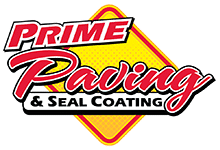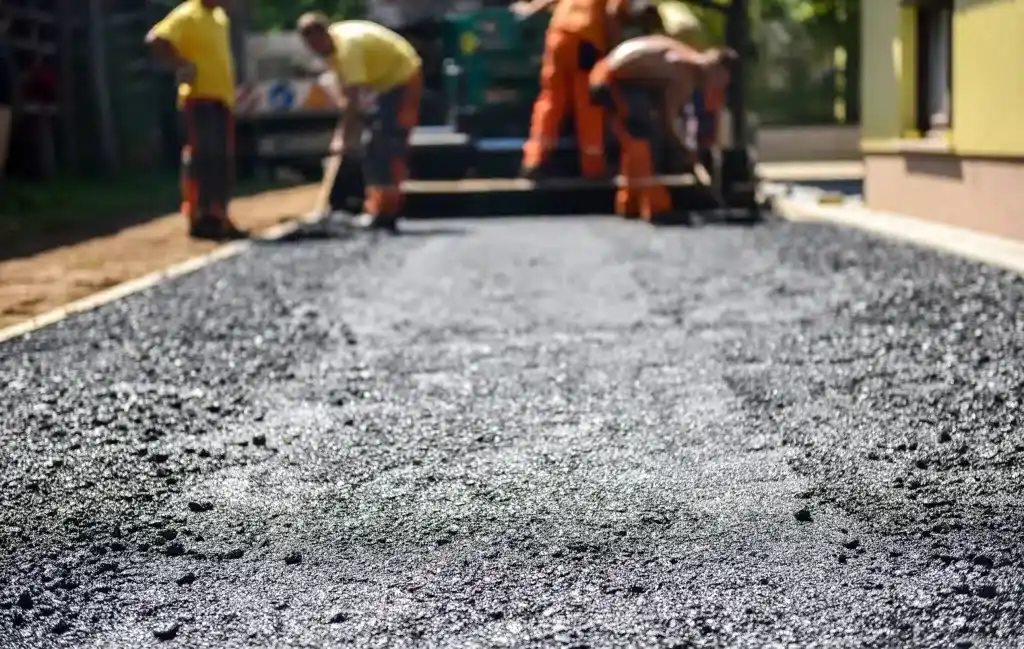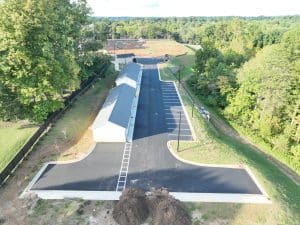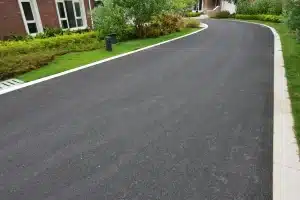Road milling, also often referred to as cold planing, is the process of removing, grinding, and recycling a portion of a paved surface. This is one of the most common processes in the road construction industry but may also be used for parking lots and walkways.
According to the Asphalt Recycling and Reclaiming Association, there are 5 classes of road milling:
- Class 1: to remove surface irregularities
- Class 2: to ensure uniform depth based on plans and specs
- Class 3: adding cross-slope to Class 2
- Class 4: to base/subgrade
- Class 5: to various depths at various locations
Prime Paving in Mooresville, NC has the experience and expertise to help you with all of your paving needs, including road milling. In this article, we’ll explain more about how road milling works, the uses for road millings, and the advantages of road milling.
How does Road Milling Work?
The process of road milling involves scraping the surface of the asphalt and putting it into a milling machine. This machine features a large, rotating drum that contains carbide cutters that grind up the asphalt.
After being cut, the asphalt automatically moves to the center of the drum where it is released onto a conveyor belt. Most modern milling machines use a front-loading conveyor that will also pick up any asphalt that falls off during milling.
Then, the milled asphalt is either placed back on the surface and smoothed out or placed in a dump truck for disposal. There are many uses for asphalt millings:
- Repair cracks/potholes in pavement
- Aggregate in new pavement
- Resurface pavement
The process of milling produces extreme heat and dust. In order to reduce this, water is typically applied to the drum during milling.
There are two types of road milling: standard and micro-milling. Micro-milling uses more carbide cutters than standard machines, which grind up the asphalt smaller to create a smoother surface. In some cases, a thin overlay is used to improve the quality of the surface.
Advantages of Road Milling
If you have an asphalt surface that needs to be repaired, road milling may be a viable alternative to other processes. There are several advantages associated with road milling:
First of all, it is good for the environment. The process of road milling produces aggregate that can be reused in paving projects or in fresh hot mix asphalt. After all, most paving projects can benefit from recycled road millings.
Next, the process of road milling creates a smooth surface by removing bumps, ruts, and other surface abnormalities that impact safety. Additionally, millings can be used to fill in cracks and potholes to create a smoother surface or in rumble strips along the edge of the road.
When it comes to paving projects, it is much more budget-friendly to resurface rather than replace the entire structure. Plus, road milling allows you to stop at any depth you need to. If your issue is confined to the top layer, we can only remove it. If the issue goes deeper, we can go as deep as the sub-base.
Finally, road milling is quick, which means less interruption to traffic.
Common Uses for Road Milling
There are several potential uses for road milling. One of the primary reasons is to recycle the asphalt to be used as aggregate in fresh pavement. This has a positive effect on the environment because it prevents the use of additional resources to create new asphalt.
Road milling helps with uneven/bumpy pavement, repairs damage due to fires/accidents, and acts as a binder to prevent the components used to make asphalt from separating and compromising the surface.
Finally, millings can be used to create rumble strips, which is helpful because they can be added to pre-existing surfaces.
Let Prime Paving Help with Your Paving Needs
If you are interested in learning more about road milling or other asphalt services in or near Mooresville, NC, contact the professionals at Prime Paving. We can handle both residential and commercial projects. Schedule your consultation today and let us show you how road milling can benefit you.






